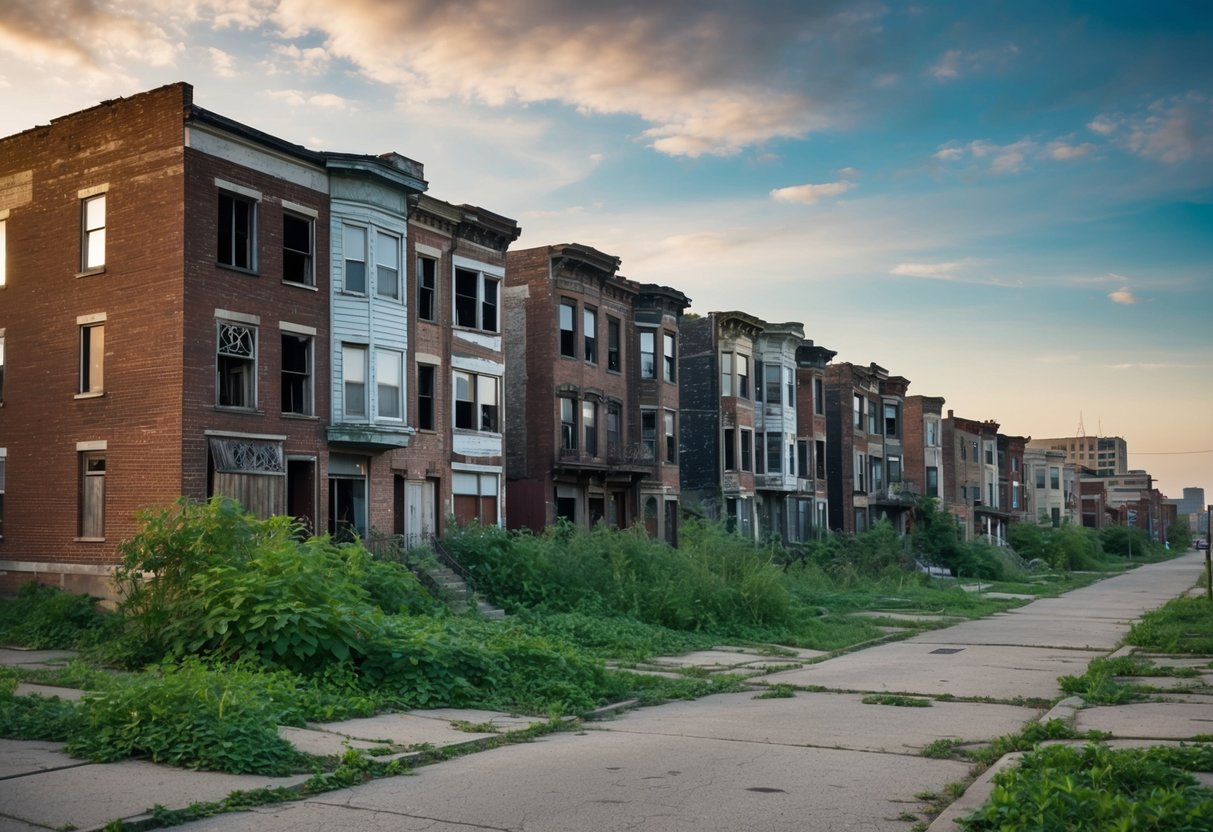The Poorest Town in Ohio: What You Need to Know About It? Ohio’s economy is diversified with both manufacturing and agriculture, but its cities and towns are economically diverse too. Some cities and towns have long-standing poverty and few opportunities; others do very well in places where industry is thriving. Understanding the measurement of poverty informs an approach to addressing the challenges that are confronting Ohio’s vulnerable communities.
Poverty Measures and Small Communities
Other indicator variables that measure poverty at smaller geographic levels include unemployment rate, poverty rate, and median household income. A U.S. Census Bureau established the poverty cut point by family size and income size. There are areas, which correlate significantly with poverty, including health care and medical services, education, employment opportunities, and accessible or affordable homes.
Athens: Ohio’s Poorest Cities
Ohio University is located in Athens, a southeastern Ohio city that is known for its natural beauty. The municipality suffers economically while having a rich cultural and educational history.
Economic Indicators in Athens
Median household income is approximately $24,000, but significantly lower than Ohio at $56,602.
Poverty rate is an astonishing 51.8%, which is over three times higher than the 13.1% average in the state.
The unemployment rate is 8%, more than the national average of 3.6%.
Causes of Poverty in Athens
Several cause are contributing to such a high poverty rate in Athens:
Decline of Local Industries: The town, once relying on coal mining and industry, has faced employment losses and industrial decline.
Limited Job Opportunities : As larger companies are fewer, there are a few job opportunities. Especially those individuals lacking higher education degrees do not find job opportunities.
Educational Attainment: While Ohio University attracts students, many residents in Athens county are unable to access post-secondary education, thereby limiting local employment opportunities.
Healthcare: A lack of health care facilities makes poor health worse and threatens stability.
Poverty Impact on the Community
Many facets of daily lives in Athens are affected by its poverty level:
Education: Schools with insufficient funding struggle to provide resources, which in turn leads to worse learning outcomes and a higher dropout rate.
Healthcare: Barriers to quality health care result in poor health outcomes and productivity.
Housing: Affordable housing is in short supply, and most residents are living in less-than-desirable conditions because housing is too expensive and strains household budgets.
Crime: A higher crime rate often goes hand in hand with economic problems, which then limits investment and growth.
Citizen Voices in Athens
Personal stories reflect the struggles citizens have:
The Story of Jane: Jane is a single mom working two part-time jobs. She still sends her kids to food banks for dinner. Small Business Owners Many close their stores due to customers that spend less, and operating costs are too high.
Community Efforts: Despite hardship, Athenians strive to build their relationships with each other through programs including community gardens and after-school tutoring.
Battling Athens’ Poverty
There are a variety of efforts that continue to combat Athens’ poverty:
Government Initiatives: Initiatives from the federal and state governments include healthcare access, housing assistance, and food support.
Community Agencies: Community agencies like Good Works Inc. and the Athens County Food Pantry have food distribution, housing support, and emergency services.
Community-Driven Solutions: Local cooperatives and community gardens foster economic participation and independence.
Way Forward: A Road to Economic Revival
There is optimism in Athens’ future despite the many challenges that must be addressed:
Education and infrastructure investment can also lead to skills development among residents for better-paying jobs, as businesses are attracted and employment opportunities open.
Collaboration: Institutions, local government, and community leaders should collaborate to facilitate entrepreneurship and economic development.
Tourism and Cultural Resources: Making the most of Athens’ fantastic scenery and rich history may boost tourism and the economy.
Conclusion
Athens, Ohio is reflecting the economic hardships experienced in most small towns in the US.
Comprehending the underlying causes of poverty and its effects in creating targeted solutions can be done. Funding infrastructure and education support, neighborhood projects, and pushing for legislative improvements in Athens and equivalent cities can enhance the same places. Sustained work will make equity and prosperity real for everyone.


 by
by 




